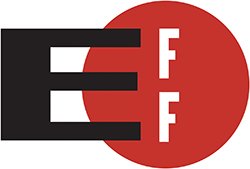 In May of this year, the NPR podcast "Planet Money" released an episode entitled "When Patents Hit the Podcast." At that time, we reported on this podcast, and the misconceptions of the patent system that the show perpetuated (see "When NPR Podcasters Hit the Patent System"). NPR rebroadcast the episode last week, including an update related to the podcasting patent that was featured in that show, owned by Personal Audio LLC ("Personal Audio"). Even though that patent does not deal with the Biotech or Pharmaceutical industry, the criticisms that the show levied against the patent system affect all patents. Therefore, an update of our story seemed appropriate.
In May of this year, the NPR podcast "Planet Money" released an episode entitled "When Patents Hit the Podcast." At that time, we reported on this podcast, and the misconceptions of the patent system that the show perpetuated (see "When NPR Podcasters Hit the Patent System"). NPR rebroadcast the episode last week, including an update related to the podcasting patent that was featured in that show, owned by Personal Audio LLC ("Personal Audio"). Even though that patent does not deal with the Biotech or Pharmaceutical industry, the criticisms that the show levied against the patent system affect all patents. Therefore, an update of our story seemed appropriate.
 As suggested, the majority of the Podcast was a straight repeat of the earlier show. One of the updates provided was a description of the recently introduced patent-reform legislation. The only other update was a report that, as Planet Money host Zoe Chace put it, the Electronic Frontier Foundation ("EFF") recently filed "a complaint" with the Patent Office saying that the podcast patent "should not exist." The EFF is an organization that describes itself as a "donor-funded nonprofit" that "has championed the public interest in every critical battle affecting digital rights." The originally aired episode explained that the EFF was seeking to invalidate this patent at the United States Patent Office. The EFF has now filed a petition for inter partes review of U.S. Patent No. 8,112,504 ("System for Dissmeinating Media Content Representing Episodes in a Serialized Sequence"), the so-called podcasting patent. Interestingly, the EFF basically crowd-sourced both the cost of filing the petition, and the technological substance found within the petition. A link can still be found on the EFF website for the "Save Podcasting" donation page, on which it is reported that the original goal of $30,000 was met in under 10 hours. The website solicited donations at levels from its Silicon/Student Member ($25) to as high as its Super Major Donor ($2,500). The site reports having received $76,890 to date, although it does not indicate what it will do with the excess money, other than its work to "stop trolls and stupid patents for good."
As suggested, the majority of the Podcast was a straight repeat of the earlier show. One of the updates provided was a description of the recently introduced patent-reform legislation. The only other update was a report that, as Planet Money host Zoe Chace put it, the Electronic Frontier Foundation ("EFF") recently filed "a complaint" with the Patent Office saying that the podcast patent "should not exist." The EFF is an organization that describes itself as a "donor-funded nonprofit" that "has championed the public interest in every critical battle affecting digital rights." The originally aired episode explained that the EFF was seeking to invalidate this patent at the United States Patent Office. The EFF has now filed a petition for inter partes review of U.S. Patent No. 8,112,504 ("System for Dissmeinating Media Content Representing Episodes in a Serialized Sequence"), the so-called podcasting patent. Interestingly, the EFF basically crowd-sourced both the cost of filing the petition, and the technological substance found within the petition. A link can still be found on the EFF website for the "Save Podcasting" donation page, on which it is reported that the original goal of $30,000 was met in under 10 hours. The website solicited donations at levels from its Silicon/Student Member ($25) to as high as its Super Major Donor ($2,500). The site reports having received $76,890 to date, although it does not indicate what it will do with the excess money, other than its work to "stop trolls and stupid patents for good."
With regard to the art cited in the petition, the EFF appears to have crowd-sourced this information also. The EFF website contains a link labeled "Prior Art," which opens an "Ask Patents" webpage requesting help to "bust a patent being asserted against podcasting." Claim 31, the claim that has been asserted against several podcasters, reads as follows:
13. Apparatus for acquiring and reproducing media files representing episodes in a series of episodes as said episodes become available, said apparatus comprising: a digital memory, a communications port coupled to the Internet for transmitting data requests for data identified by specified URLs, for receiving downloaded data identified by said URLs in response to said requests, and for storing said downloaded data in said digital memory, and a processor coupled to said digital memory and to said communications port for executing one or more utility programs for: performing, from time to time, one of a sequence of update operations, each of said update operations comprising: downloading via the Internet the current version of a compilation file identified by a predetermined known URL, and storing attribute data contained in said current version of said compilation file in said digital memory, said attribute data describing one or more episodes in a series of episodes, said attribute data for each given one of said episodes including one or more episode URLs identifying one or more corresponding media files representing said given one of said episodes, accepting a selection of a particular episode described by attribute data stored in said digital memory by the operator of said apparatus, downloading and storing the particular media file identified by an episode URL included in the attribute data for said particular episode if said particular media file is not already stored in said digital memory, and reproducing said particular media file in a form perceptible to said operator.
This patent claims priority back to October 2, 1996. The Planet Money hosts noted that Personal Audio originally distributed magazine content via audio tapes. They joked, therefore, that the patent could be invalidated by any teenager in the 1980s that created a mixed tape. Clearly, such a tape would not invalidate the above claim (which speaks volumes regarding the patent sophistication of the Planet Money reporters). The EFF, on the other hand, has an understanding of the patent system, even if they are skeptical of it. They requested on the webpage "prior art that describes accessing a series of media files organized as episodes, tracks, installments, or the like, through the use of "compilation" data that (a) available to be downloaded by a client device, and (b) updated to describe the media files that are currently available." To date, they received 107 answers.
The inter partes review petition for the '504 patent references three different prior art "publications" that were alleged to anticipate or render obvious at least claims 31-35 of the patent. The first piece of prior art included was the "Geek of the Week" Internet talk radio show. The first two grounds referenced in the petition were (1) the website www.ncsa.uiuc.edu/radio/radio.html, appearing on April 22, 1993, and (2) the April 22, 1993 edition of the SurfPunk Technical Journal. These "publications" were cited as 35 U.S.C. § 102(b) prior art. The first of these publications was one of the webpages for the "Geek of the Week" Internet talk radio show. The SurfPunk Technical Journal publication, on the other hand, republished the "Geek of the Week" webpage as it existed on April 22, 1993. The petition also included a third ground for invalidity related to the Geek of the Week publications themselves. In an abundance of caution, the EFF alleged that the Geek of the Week publications collectively contained all of the limitations, and therefore rendered the claims 31-35 obvious. To help provide some context of these early "podcasts," the Planet Money updated episode contained some of the audio from these early "Geek of the Week" shows.
The second prior art reference was a Canadian Broadcasting Corporation ("CBC") Radio Article, which appeared on January 1, 1996, and which described an Internet radio trial that was available on demand beginning in December 1993. This article allegedly described the "availability of regularly-updated episodic radio programs on a web page at a predetermined location." This was cited as 35 U.S.C. § 102(a) prior art. Finally, the third prior art publication was the "Internet CNN Newsroom," which was a master's thesis submitted to MIT in May 1995, and made available on August 10, 1995. Apparently the limitation of an "updated" compilation file was missing from the publication, but the EFF alleged that such a file would have been an obvious design choice.
We take no position on the merits of this inter partes review petition, but we will continue to monitor its progress. As we noted at the time, such a proceeding is a completely legitimate mechanism to address these so-call "bad" patents that people consider to be overbroad. It would appear that if the EFF's characterization of these prior art publications is correct, even if they do not serve to invalidate the claims, it is a distinct possible that the claims will be narrowed such that Personal Audio will no longer be able to assert them against podcasters. This is because the cited art appears to be similar to the same activity that gave rise to the demand letters and infringement lawsuits (such as the dissemination of podcasts like Marc Maron's WTF podcast and "The Adam Carolla Show"). Of course, we have not yet heard from Personal Audio, because they have filed no response yet with the Patent Office. Nevertheless, it would not be surprising if Personal Audio was able to identify some distinction between their claims and these Internet radio shows from years earlier.